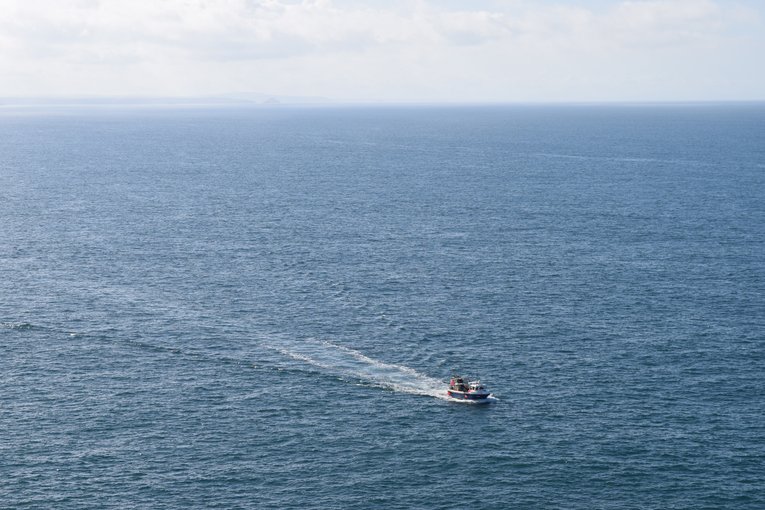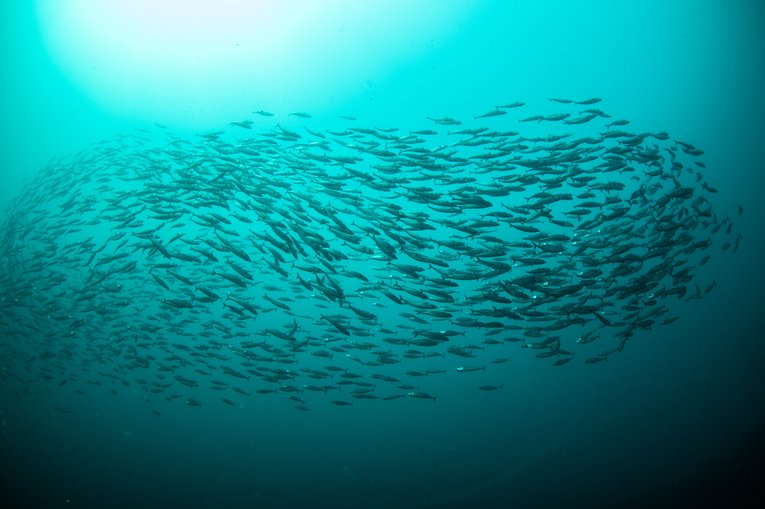
Our new study shows ocean protection's worth
Our analysis shows a bottom trawling ban in the UK’s offshore protected areas could be worth over three billion pounds to the UK economy.
In a new report, we've calculated the cost-benefit of banning bottom-contact fishing from the UK’s offshore Marine Protected Areas (MPAs) designated to protect seabed features.
Considering the value of the services MPAs could potentially provide society, including carbon storage, removal of pollutants, nutrient cycling and recreational opportunities, we've found that, if protected from all damaging activities, the overall net benefit could amount to between £2.57 billion and £3.5 billion over a 20-year period.
You can read a summary of the report here.

Credit: Marek Okon
Our analysis shows that initially, costs outweigh the economic gains of banning bottom-contact fishing gear. Costs include the loss of earnings by fishers, and the setting up and enforcement of the ban. However, these costs are quickly surpassed after 2-4 years, and then are entirely outweighed by the gains achieved over the mid- to long-term.
The cumulative impact of removing damaging activities becomes positive after 3-6 years of ecosystem recovery and continues to rise over the next 20 years. The initial net costs are in the order of tens of millions versus several billions in net benefits achieved over a longer period.
When the seabed is left to recover, biodiversity increases, leading to more productive seas, and improved richness and complexity of the seafloor.

Credit: Sue Ranger
Richard Hill, MPA Policy Officer, said, “A seabed that is rich in wildlife is vital for absorbing and storing carbon, buffering the effects of climate change, and supporting biodiversity.
“Continuing to allow abrasive, heavy fishing gear, like bottom trawls and dredges, in our MPAs makes them obsolete. It prevents the recovery of ecosystems already lost to decades of exploitation, and limits the seabed’s ability to store carbon and combat the effects of the climate crisis.”
In 2021, we reported that bottom-contact fishing is taking place in 98% of the UK’s offshore MPAs. Allowing destructive activity within MPAs undermines the purpose for which they were created and reduces their benefit to society.

Credit: Cathy Lewis
It's not only banning bottom trawling that could provide economic benefits to society. Preventing other damaging activities within MPAs is required to harness the full economic potential of these areas.
Our report suggests that removing all stressors that impact the marine environment, such as chemical pollution and construction of offshore infrastructure, are vital for this. The analysis reveals that the benefits of a bottom-contact fishing ban in MPAs would be diminished if other damaging activities were allowed to continue or were to be introduced.
Our research shows that MPAs are not only important for marine life and carbon storage, but the seabed offers us huge economic value and investment opportunities too. Decisions affecting the marine environment need to consider this value and also look towards the enduring benefits over the long-term.
By allowing trawling in protected areas and polluting our waters, we are robbing ourselves of the benefits a healthy ocean and decreasing the value of our marine environment. On the flip side, we stand to gain massively if we allow these ecosystems to recover.
James Merchant, Marine Natural Capital Analyst
We're continuing to raise awareness of these economic opportunities of protecting the seabed and maximise potential natural capital.

